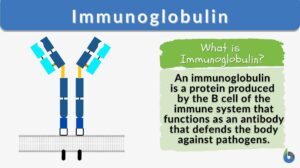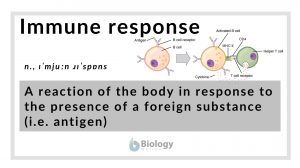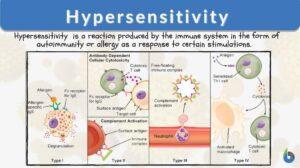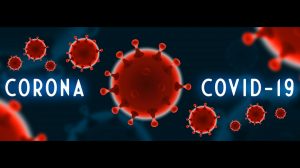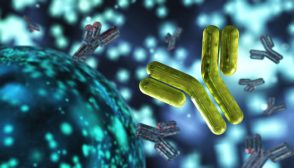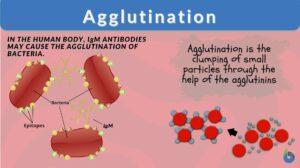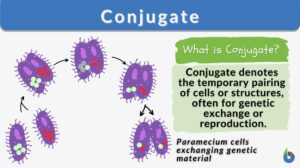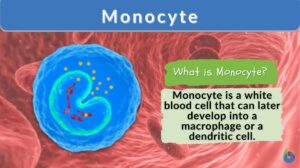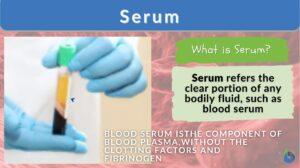Search Results for: antibody
Antibody diversity
Antibody diversity The phenomenon of immense variability characteristic of antibodies, which enables the immune system to... Read More
Incomplete antibody
Incomplete antibody --> univalent antibody An incomplete form of antibody that may coat antigen, but which according to... Read More
Humoral immunity
Let’s get to know where one should place humoral immunity, the topic of today’s discussion!! By the end of the article,... Read More
Reaginic antibody
reaginic antibody --> homocytotropic antibody (Science: immunology) A type of antibody which is able to attach itself to... Read More
Neutralizing antibody
Definition noun An antibody that is capable of keeping an infectious agent, usually a virus, from infecting a cell by... Read More
Blocking antibody
Blocking antibody An antibody used in a reaction to prevent some other reaction taking place, for example one antibody... Read More
Antigen-antibody complex
Antigen-antibody complex The complex formed by the binding of antigen and antibody molecules. The deposition of large... Read More
Bivalent antibody
Bivalent antibody antibody that causes a visible reaction with specific antigen as in agglutination, precipitation, and so... Read More
Immunoglobulin
Immunoglobulin Definition An immunoglobulin is a globulin molecule produced by the immune cells, for the body's defense... Read More
Antibody-forming cell
Antibody-forming cell (Science: immunology) b-cells (plasma cells) that are dedicated to producing secreted... Read More
Monoclonal antibody
monoclonal antibody (Science: immunology molecular biology) A substance, usually a protein, which can be synthsised in the... Read More
Complement fixation test
Definition noun (immunology) A form of immunological test for the detection of the presence of either a particular antibody... Read More
Immune response
Immune Response Definition An immune response is defined as the reaction of the body in response to the presence of a... Read More
Reverse passive agglutination
Definition noun A type of agglutination reaction in which known antibody is bound to a carrier particle instead of the... Read More
Hypersensitivity
Hypersensitivity Definition Hypersensitivity is the exaggerated immune response to protect the human from foreign bodies... Read More
coronavirus COVID-19
Coronavirus Disease 2019 (COVID-19) Coronavirus Disease 2019 (COVID-19) is a contagious coronavirus disease first detected... Read More
Opsonization
Definition noun, plural: opsonizations The process at which opsonins bind to the surface of the antigen so that the... Read More
Radial immunodiffusion
Definition noun A quantitative immunodiffusion technique used to detect the level of protein (antigen) in a sample by... Read More
Bacteriolysin
Definition noun, plural: bacteriolysins (1) A specific antibody that combines with bacterial cells (antigens) and, in the... Read More
Passive and Active Types of Immunity
The previous tutorial investigated the role of white blood cells in phagocytosis. White blood cells are also responsible... Read More
Passive agglutination
Definition noun An agglutination reaction of inert particles coated with soluble antigen through an antiserum specific for... Read More
Agglutination
Agglutination Definition What does agglutination mean? It generally refers to the process of sticking together or the... Read More
Rosette formation
rosette formation The in vitro formation of clusters consisting of a cell (usually a lymphocyte) surrounded by antigenic... Read More
Immunoglobulin A
Definition noun An immunoglobulin (antibody) that is characterized by its α-heavy chain, and its prevalence in mucous... Read More
Active agglutination
Definition noun An agglutination reaction in which the antigen is found naturally on particle Supplement Agglutination... Read More
Autoimmune disease
Definition noun, plural: autoimmune diseases A type of disease as a result of an immune response of the body against own... Read More
Using Antibodies : A Laboratory Manual : Portable Protocol NO. I
Using Antibodies : A Laboratory Manual : Portable Protocol NO. I ... Read More
Neutralization
Definition noun (general) The act or process of making neutral. (chemistry) A chemical reaction in which an acid and a base... Read More
Complement
Complement (Science: immunology) a term originally used to refer to the heat labile factor in serum that causes immune... Read More
Direct agglutination
Definition noun (1) An agglutination (macroscopic clumping) caused by one antibody. (2) A serological technique in which... Read More



